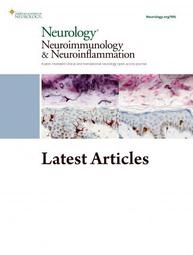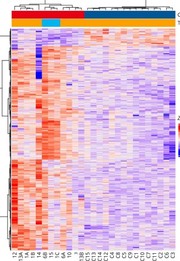Immune and Genetic Signatures of Breast....
Paraneoplastic cerebellar degeneration (PCD) is a rare condition but is one of the commonest paraneoplastic neurologic disorders, mainly associated with breast and ovarian carcinomas. The main feature is a rapidly progressive cerebellar ataxia secondary to the specific destruction of Purkinje cells by cytotoxic T cells. About 50% of PCD cases are associated with anti-Yo autoantibodies (Yo-PCD), directed against Yo antigens CDR2 (cerebellar degeneration-related protein) and its paralogue CDR2L. The previous description of an uncommon and intense immune attack in Yo-PCD ovarian cancers highlighted that antitumor immunity has a lead role in paraneoplastic syndrome pathogenesis. The presence of specific alterations of genes encoding Yo antigens in all Yo-PCD ovarian cancers strongly suggests that neoantigenicity is a pivotal mechanism leading to the immune tolerance breakdown that could in turn drive the immune overreaction spearheading the paraneoplastic syndrome. Hypothesizing the aforementioned Yo gene specificities to be causative in immune tolerance breakdown in Yo-PCD, similar genetic alterations should be found in breast cancer (BC) associated with Yo-PCD. However, the already described overexpression of human epidermal growth factor receptor 2 (HER2) in Yo-PCD BCs8 leads to believe that antigen specificities are not the only molecular triggers of the immune tolerance breakdown and that other mechanisms, potentially linked to breast oncogenesis, could be involved. To move forward in our understanding of the mechanisms leading to this specific immune reaction, we analyzed the salient clinical, histopathologic, and immunologic features, gene expression profiles, and mutational status of Yo-PCD BCs.




